press release
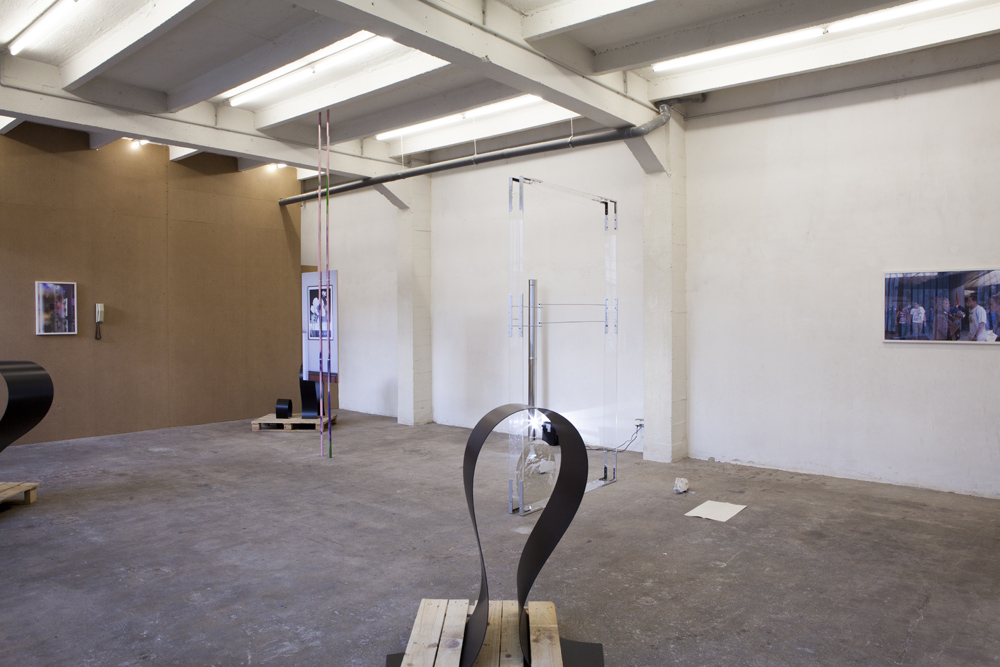 I would prefer not to, 2013
I would prefer not to, 2013Exhibition view, Exo Exo, Paris
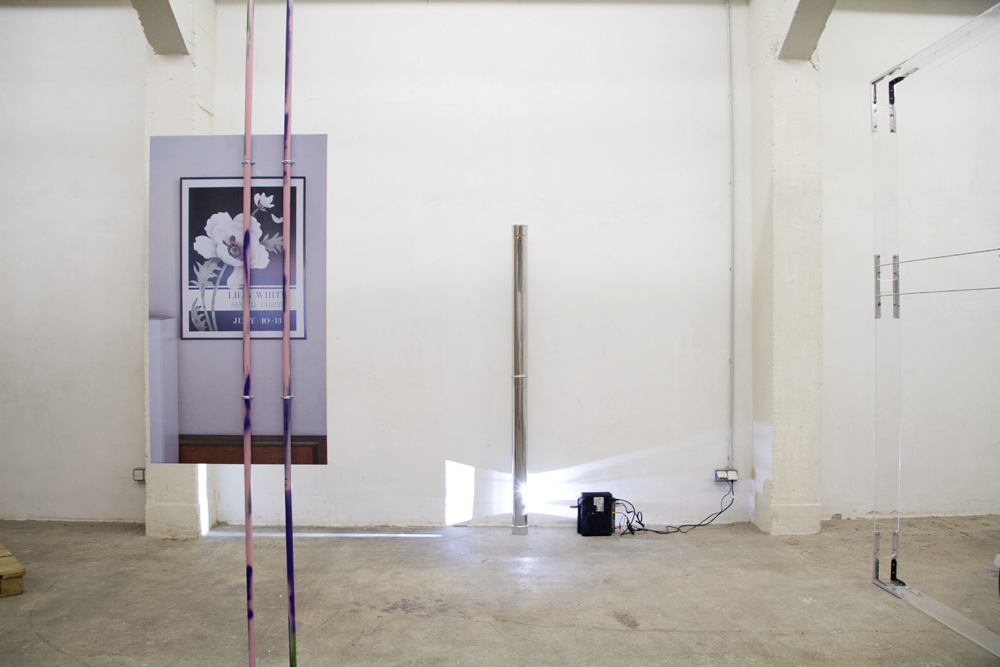 I would prefer not to, 2013
I would prefer not to, 2013Exhibition view, Exo Exo, Paris
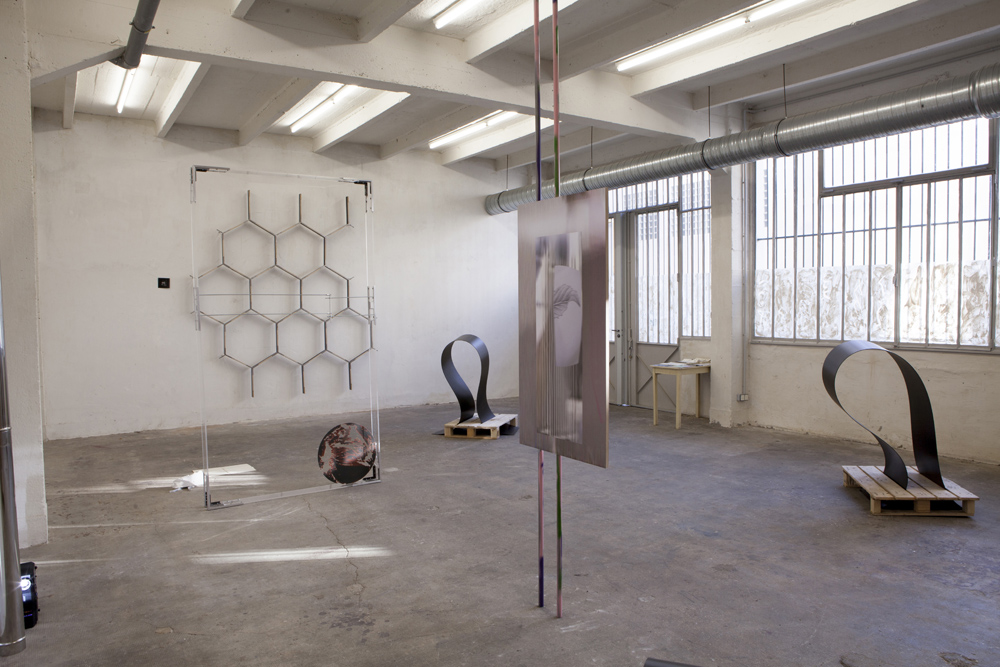 I would prefer not to, 2013
I would prefer not to, 2013Exhibition view, Exo Exo, Paris
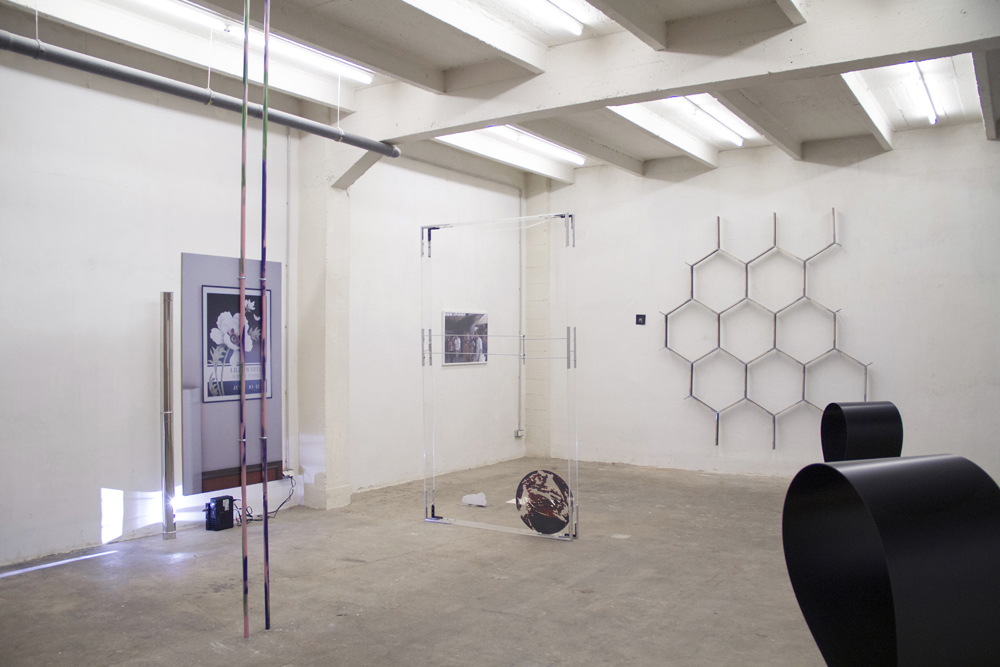 I would prefer not to, 2013
I would prefer not to, 2013Exhibition view, Exo Exo, Paris
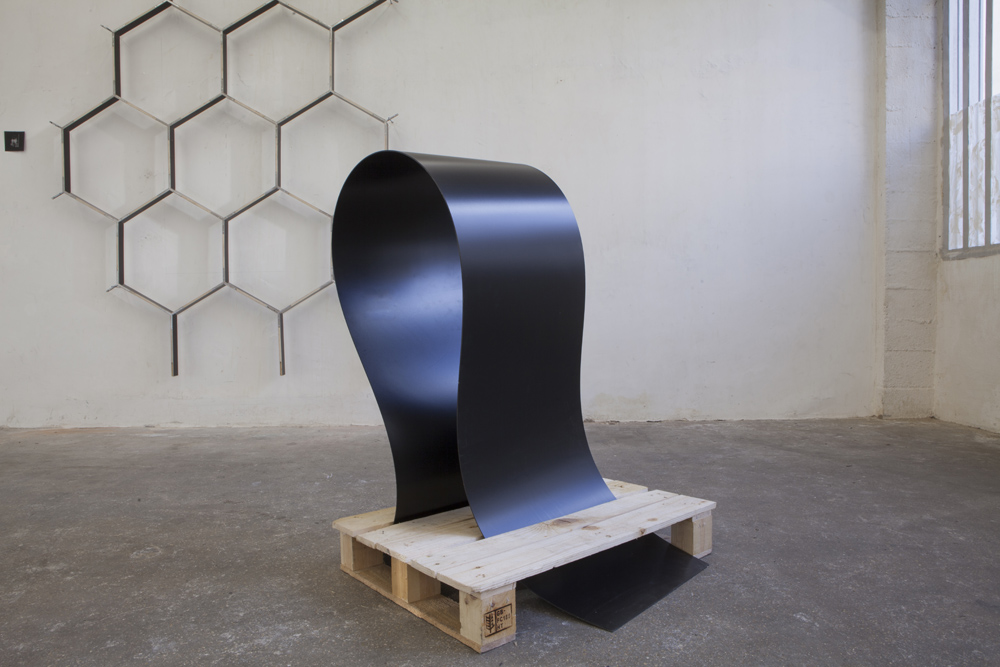 Ugo Cerina, Rythmiques ouvrières, 2012-2013
Ugo Cerina, Rythmiques ouvrières, 2012-2013Palettes & PVC, dimensions variables
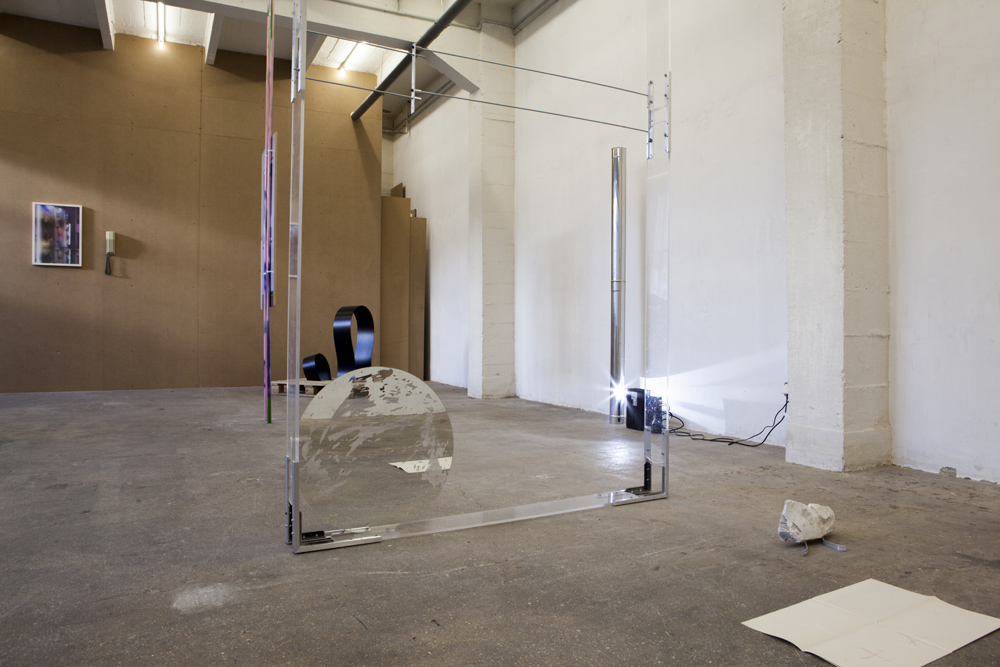 Andrés Ramirez, Maximum dose, 2013
Andrés Ramirez, Maximum dose, 2013Aluminium, plexiglas, acier, verre, plâtre et sérigraphie
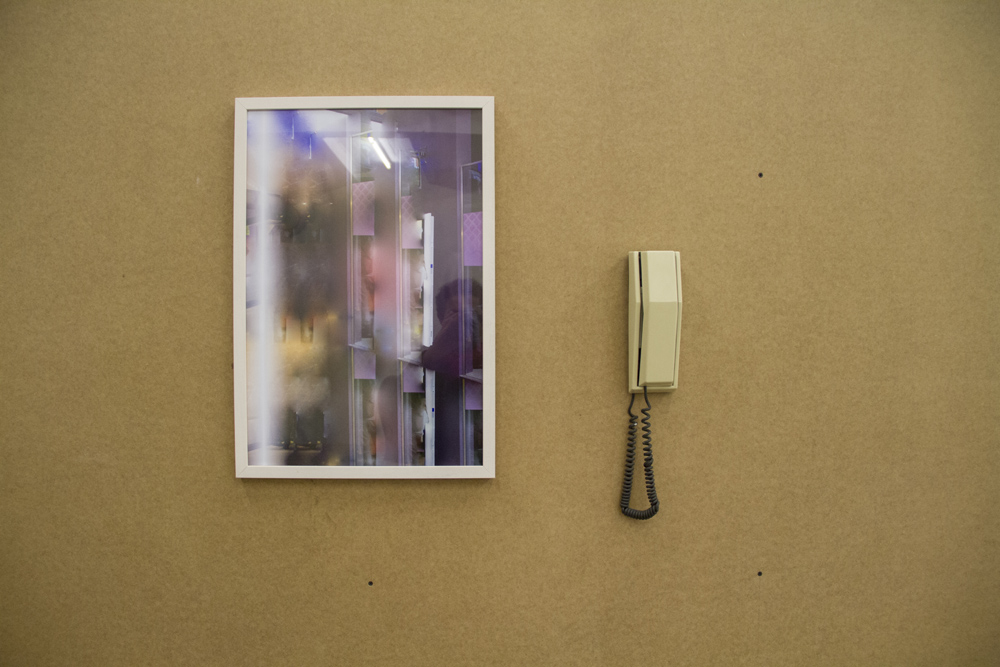 Ghislain Amar, Dispositions, suite, 2013
Ghislain Amar, Dispositions, suite, 2013Tirage jet d’encre & interphone
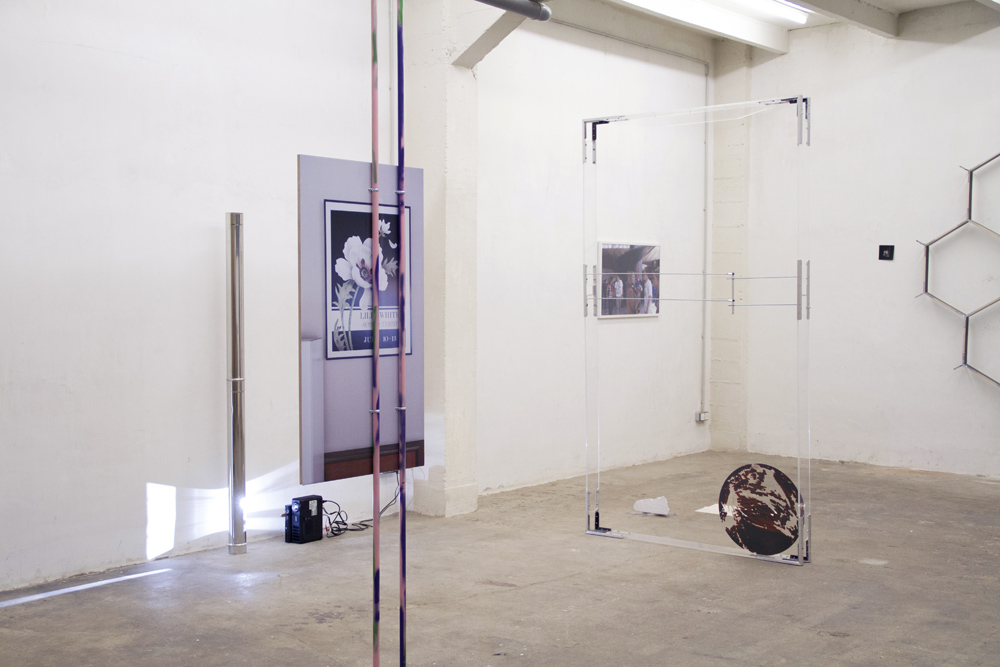 I would prefer not to, 2013
I would prefer not to, 2013Exhibition view, Exo Exo, Paris
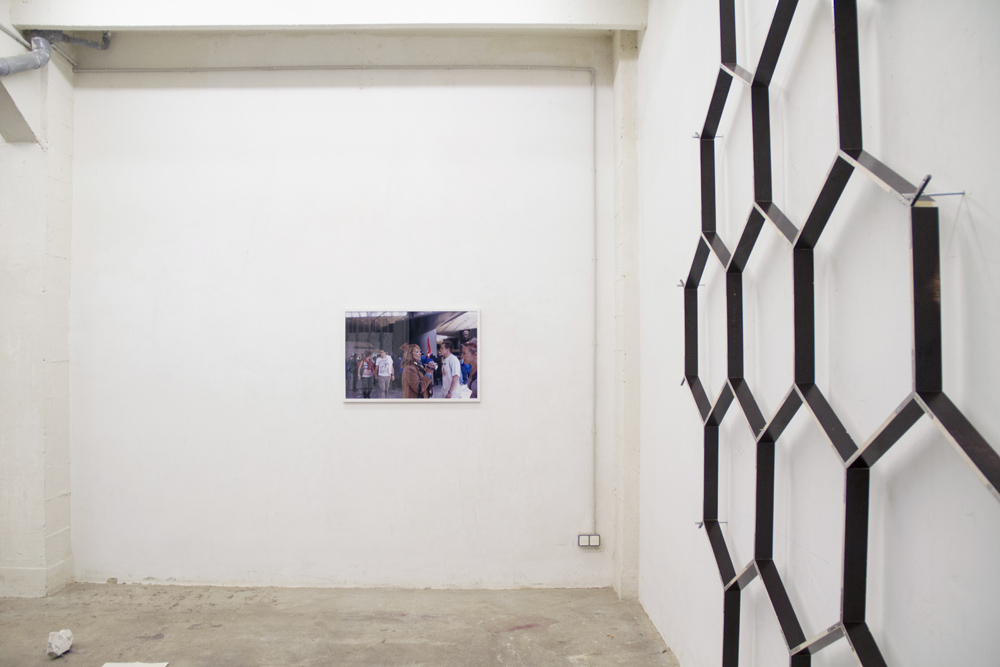 I would prefer not to, 2013
I would prefer not to, 2013Exhibition view, Exo Exo, Paris
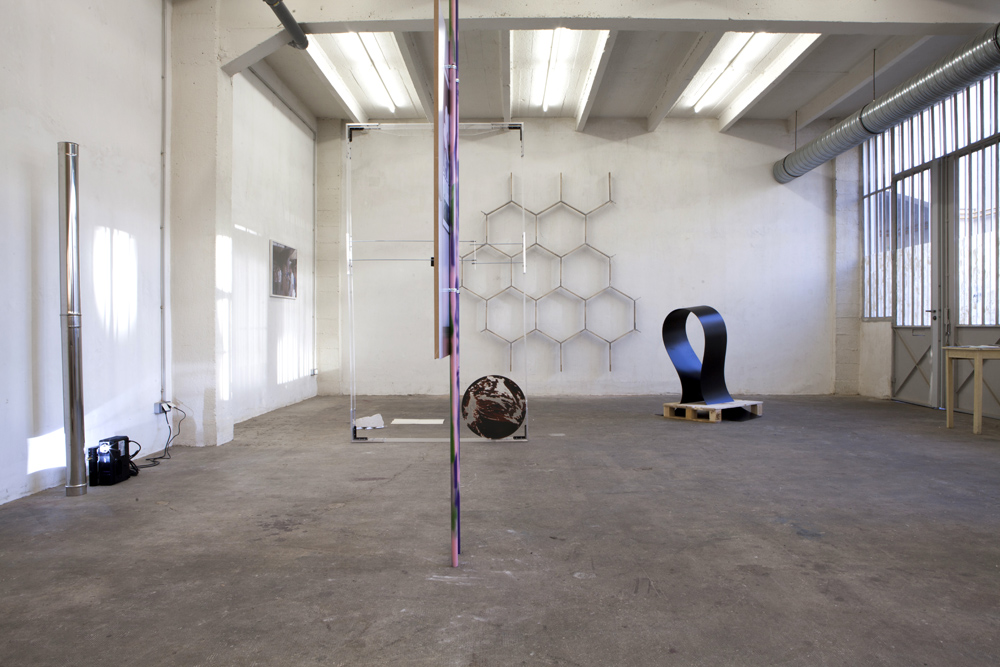 I would prefer not to, 2013
I would prefer not to, 2013Exhibition view, Exo Exo, Paris
I am taking leave from you now, to establish myself in an impersonal space, one that would be uniquely mine. I would adorn it with an entire domestic decorum, with banners and ornaments of heavy metal. It would be temporary, arid and potentially risky. It would be beautiful like an abandoned engine entwined amongst the weeds and their tongues.
“I would prefer not to” – the ritornello Herman Melville’s Bartleby repeats endlessly to his death, stirs up a highly aporetic significance, as it resists the rules of response, and escapes the lineage of representation. Concealed behind a folding screen, the scrivener catches the smell of Wall Street sending him into an autistic vertigo, as he prefers to put and end to all speech rather than continue to endure the discursive order. Once it is thrust out of language, the act of speech generates the negative as a tangible event, interrupting the idea of communication as a ground for justification. He is saying “I have the right to absent myself from the world”, to live off the grid and cast a look from the outside, to snatch the loaded dice from your hands, to shape my own combinations from the ruins of anterior ones.
The artist’s performative act sheds light on that partition suggested by any initiative of communication so as to elucidate the deserts and weak links that underlie it. Through shifts and deformations, the works combine a reflection on notions of productivity and device, of the decisive abbreviation of gestures, “standing” on the ridge of an inertia above which hangs the danger of a potential idleness. No justification or message prevails at this point. Only an unbalanced grammar, an irregular sequence of fictional stimuli that attempt to arrange the physical space of their enunciation, of their plentitude and their emptiness.